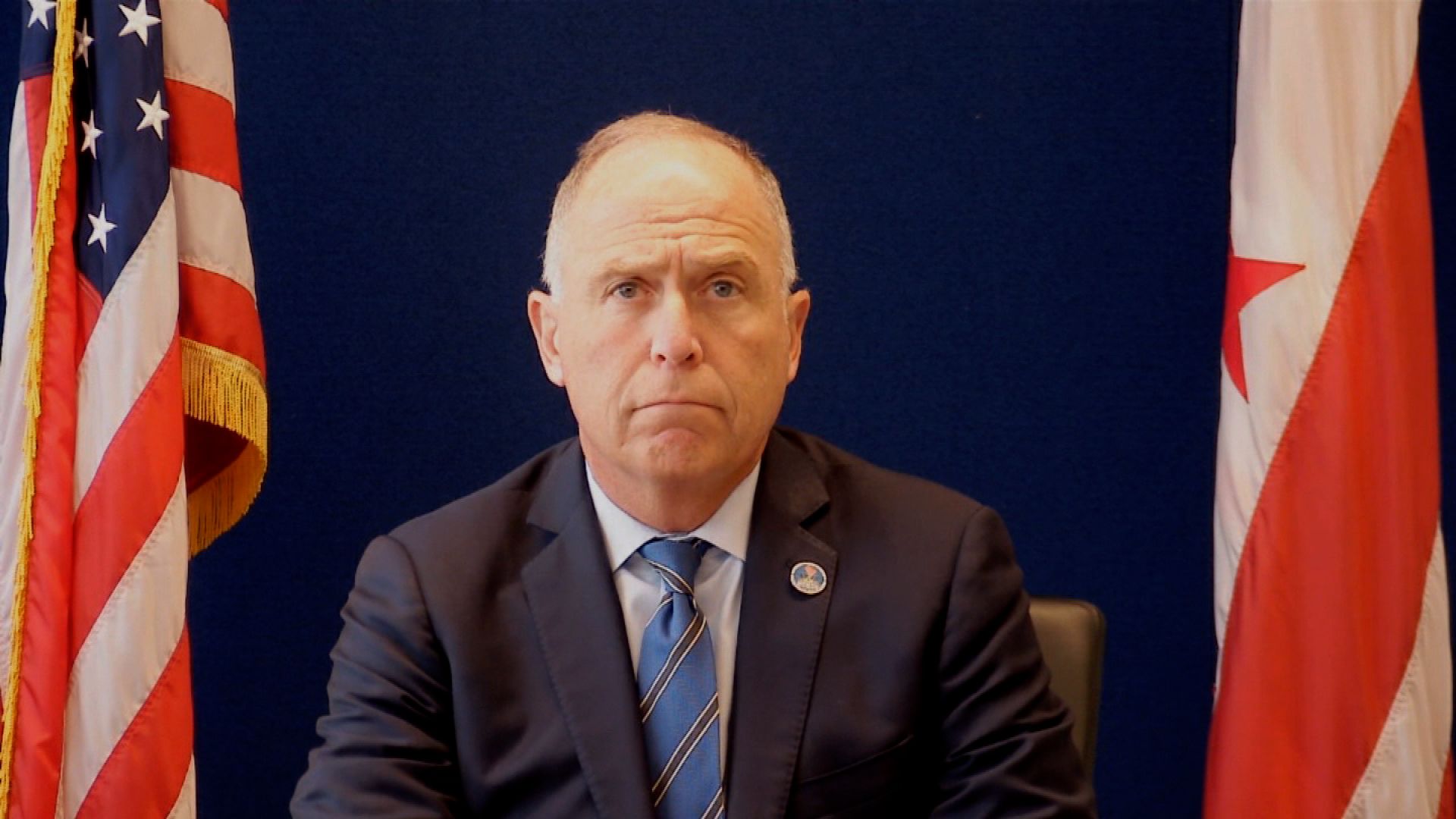
Joy Reid claims 'mediocre White men' like Trump, Elvis can't 'invent anything,' steal culture from other races
Entities mentioned:
- Joy Reid: Moral outrage, Righteousness, Indignation
- Donald Trump: Power, Control, Legacy
- Elvis Presley: Recognition, Influence, Legacy
- Wajahat Ali: Righteousness, Moral outrage, Recognition
- Kennedy Center: Legacy, Influence, Recognition
- Smithsonian: Legacy, Influence, Duty
- PragerU: Influence, Righteousness, Legacy
- Harrison Fields: Loyalty, Indignation, Professional pride
Article Assessment:
Credibility Score: 65/100
Bias Rating: 70/100 (Lean Right)
Sentiment Score: 25/100
Authoritarianism Risk: 45/100 (Mixed/Neutral)
Bias Analysis:
The article leans right, presenting critical views of left-leaning figures and their statements. While it includes quotes from both sides, it gives more space to counter-arguments and criticism of Reid's comments.
Key metric: Social Cohesion
As a social scientist, I analyze that this article highlights deep racial tensions and cultural divisions in American society. The rhetoric used by Joy Reid and Wajahat Ali suggests a strong resentment towards what they perceive as the appropriation of minority cultures by white Americans. Their claims about the inability of 'mediocre White men' to create culture or innovate independently are likely to exacerbate racial tensions and decrease social cohesion. The article's framing of Trump's actions regarding the Kennedy Center and Smithsonian as a 'hostile takeover' further emphasizes the polarization in cultural and historical narratives. This discourse, if amplified, could lead to increased societal fragmentation and decreased trust between different racial and cultural groups, negatively impacting overall social cohesion in the United States.

Judge to decide Trump appointee Alina Habba's fate as US attorney
Entities mentioned:
- Alina Habba: Ambition, Power, Control
- Donald Trump: Power, Control, Loyalty
- Judge Matthew Brann: Duty, Justice, Righteousness
- Julien Giraud Jr.: Self-preservation, Justice, Freedom
- Desiree Grace: Professional pride, Duty, Justice
- Pam Bondi: Loyalty, Power, Control
Article Assessment:
Credibility Score: 75/100
Bias Rating: 45/100 (Center)
Sentiment Score: 35/100
Authoritarianism Risk: 65/100 (Authoritarian Tendencies)
Bias Analysis:
The article presents multiple viewpoints, including those of the Trump administration, the defendant, and legal experts. While it highlights concerns about the appointment process, it also includes the DOJ's defense of its actions, maintaining a relatively balanced perspective.
Key metric: Rule of Law Index
As a social scientist, I analyze that this case highlights a significant challenge to the traditional process of appointing U.S. attorneys, potentially impacting the Rule of Law Index. The unprecedented maneuvers by the Trump administration to keep Habba in power, despite lack of Senate confirmation, raise concerns about the separation of powers and the integrity of the justice system. This situation could weaken public trust in legal institutions and potentially set a precedent for future administrations to bypass established appointment procedures. The case also demonstrates the tension between executive authority and legislative oversight, which is crucial for maintaining checks and balances in a democratic system. The outcome of this decision could have far-reaching implications for the interpretation of federal vacancy laws and the limits of presidential power in appointing key law enforcement officials.

Progressive veterans group seeks to boost Spanberger in Virginia governor’s race with $500,000 ad campaign
Entities mentioned:
- VoteVets: Influence, Unity, Professional pride
- Abigail Spanberger: Ambition, Duty, Influence
- Winsome Earle-Sears: Ambition, Loyalty, Competitive spirit
- Donald Trump: Power, Influence, Legacy
- Democratic Party: Power, Control, Influence
- Republican Party: Power, Control, Competitive spirit
Article Assessment:
Credibility Score: 75/100
Bias Rating: 45/100 (Center)
Sentiment Score: 55/100
Authoritarianism Risk: 20/100 (Strongly Democratic)
Bias Analysis:
The article presents information from both Democratic and Republican perspectives, though slightly more space is given to Democratic strategies and viewpoints. The language used is generally neutral, with factual reporting of campaign activities and financial data.
Key metric: Political Party Power Balance
As a social scientist, I analyze that this article highlights the significance of the Virginia gubernatorial race as a bellwether for national political sentiment. The involvement of VoteVets, a progressive veterans' organization, demonstrates the increasing importance of candidates with military backgrounds in shaping party image and voter appeal. The focus on cost-of-living issues and the criticism of GOP policies indicate that economic concerns are likely to be central to the campaign. The article also reveals the strategies employed by both parties, with Democrats emphasizing affordability and Republicans focusing on cultural issues and alignment with national party figures. The financial disparity between the candidates and the advertising investments suggest that Democrats are currently in a stronger position, but the race remains competitive given recent Republican successes in the state.

Bill Barr testifies he didn't see info that would 'implicate' Trump in Epstein case, Comer says
Entities mentioned:
- Bill Barr: Duty, Professional pride, Loyalty
- Donald Trump: Self-preservation, Power, Influence
- James Comer: Ambition, Justice, Control
- Jeffrey Epstein: Power, Greed, Self-preservation
- Biden administration: Power, Control, Influence
- House Oversight Committee: Justice, Control, Duty
- Democrats: Competitive spirit, Justice, Control
- Republicans: Loyalty, Power, Control
- Suhas Subramanyam: Justice, Ambition, Duty
Article Assessment:
Credibility Score: 65/100
Bias Rating: 55/100 (Center)
Sentiment Score: 45/100
Authoritarianism Risk: 35/100 (Generally Democratic)
Bias Analysis:
The article presents multiple perspectives, including both Republican and Democratic viewpoints. However, it gives more detailed coverage to Republican statements, particularly from Chairman Comer, which slightly tilts the balance.
Key metric: Government Accountability and Transparency
As a social scientist, I analyze that this article highlights the ongoing investigation into the handling of Jeffrey Epstein's case, focusing on former Attorney General Bill Barr's testimony. The investigation appears to be part of a broader effort to assess government accountability in high-profile cases. Barr's testimony, suggesting no implication of former President Trump in the Epstein case, raises questions about the thoroughness of the investigation and potential political motivations. The partisan divide in the committee's approach to questioning Barr indicates a politicization of the process, which may impact public trust in government institutions and their ability to handle sensitive cases impartially. This investigation could influence public perception of government transparency and the justice system's effectiveness in dealing with powerful individuals.

Five GOP-led states to send hundreds of National Guard troops to DC as White House escalates police takeover
Entities mentioned:
- Donald Trump: Power, Control, Security
- Patrick Morrisey: Duty, Loyalty, Security
- Henry McMaster: Loyalty, Duty, Security
- Mike DeWine: Duty, Security, Obligation
- Muriel Bowser: Self-preservation, Justice, Freedom
- Sean Curran: Duty, Security, Professional pride
- Robert White: Moral outrage, Justice, Freedom
- Alan Dent: Moral outrage, Justice, Freedom
- Pam Bondi: Power, Control, Loyalty
- Terry Cole: Duty, Power, Control
- Pamela Smith: Professional pride, Duty, Security
Article Assessment:
Credibility Score: 75/100
Bias Rating: 45/100 (Center)
Sentiment Score: 35/100
Authoritarianism Risk: 65/100 (Authoritarian Tendencies)
Bias Analysis:
The article presents multiple viewpoints, including those of the federal government, state governors, and local officials. While it includes criticism of the federal actions, it also provides the administration's justifications, maintaining a relatively balanced perspective.
Key metric: Political Stability Index
As a social scientist, I analyze that this article highlights a significant escalation in federal intervention in local law enforcement, particularly in Washington, DC. The deployment of National Guard troops from multiple states, coupled with the attempted federal takeover of the DC police force, suggests a dramatic shift in the balance of power between federal and local authorities. This move raises concerns about the erosion of local autonomy and the potential for increased authoritarianism. The justification of addressing crime rates, despite evidence of lower overall crime numbers, indicates a possible disconnect between the stated reasons and actual motivations for these actions. This situation could lead to increased tensions between federal and local governments, potentially impacting the overall political stability of the nation. The resistance from local officials and citizens, as well as legal challenges, demonstrates the complex interplay of federal power, states' rights, and local governance in the American system.

Trump calls White House talks 'very good, early step' toward Russia-Ukraine peace: Here's what's next
Entities mentioned:
- Donald Trump: Influence, Legacy, Recognition
- Volodymyr Zelenskyy: Self-preservation, Unity, Security
- Vladimir Putin: Power, Control, Influence
- JD Vance: Duty, Professional pride
- Marco Rubio: Duty, Influence
- Steve Witkoff: Duty, Professional pride
- Friedrich Merz: Righteousness, Influence
Article Assessment:
Credibility Score: 65/100
Bias Rating: 65/100 (Lean Right)
Sentiment Score: 60/100
Authoritarianism Risk: 40/100 (Generally Democratic)
Bias Analysis:
The article leans right, focusing heavily on Trump's role and quoting him extensively. While it includes other perspectives, the framing tends to portray Trump's efforts in a positive light.
Key metric: International Conflict Resolution
As a social scientist, I analyze that this article portrays a significant shift in the dynamics of the Russia-Ukraine conflict, with Trump positioning himself as a key mediator. The potential for direct talks between Putin and Zelenskyy, facilitated by Trump, represents a major diplomatic development. However, the article also highlights the complexities involved, including the sensitive issue of territorial concessions and the divergent security interests of Ukraine and Russia. The emphasis on European nations providing security guarantees, with U.S. support primarily through arms sales, indicates a potential realignment of international involvement in the conflict. This approach could have far-reaching implications for U.S. foreign policy and global power dynamics.

Texas Republicans call new special session for redistricting, this time with Democrats expected back
Entities mentioned:
- Greg Abbott: Power, Control, Determination
- Texas House Democrats: Righteousness, Justice, Influence
- Texas Republicans: Power, Control, Competitive spirit
- California legislature: Competitive spirit, Influence, Power
- Dustin Burrows: Duty, Control, Professional pride
- Ann Johnson: Moral outrage, Justice, Righteousness
Article Assessment:
Credibility Score: 75/100
Bias Rating: 55/100 (Center)
Sentiment Score: 35/100
Authoritarianism Risk: 65/100 (Authoritarian Tendencies)
Bias Analysis:
The article presents perspectives from both Republican and Democratic sides, quoting multiple sources. However, there's slightly more space given to Republican viewpoints and actions, which nudges it just right of center.
Key metric: Political Polarization Index
As a social scientist, I analyze that this article highlights the intense partisan struggle over redistricting in Texas, which has significant implications for the balance of power in the U.S. House of Representatives. The actions of both Republicans and Democrats demonstrate a high level of political polarization, with each side employing tactical maneuvers to gain advantage. The involvement of California in offsetting potential Republican gains in Texas further emphasizes the nationalization of local redistricting efforts. This escalation of partisan redistricting battles is likely to increase political polarization, potentially undermining democratic norms and increasing public cynicism towards the political process. The addition of other conservative priorities to the special session agenda also indicates an attempt to consolidate power and push through a broader ideological agenda, which could further exacerbate political divisions.

CFPB cuts can resume, divided appeals court rules
Entities mentioned:
- President Donald Trump: Power, Control, Influence
- Consumer Financial Protection Bureau (CFPB): Duty, Justice, Professional pride
- Judge Amy Berman Jackson: Justice, Duty, Righteousness
- Judge Greg Katsas: Duty, Loyalty, Professional pride
- Judge Neomi Rao: Duty, Loyalty, Professional pride
- Judge Nina Pillard: Justice, Righteousness, Moral outrage
Article Assessment:
Credibility Score: 75/100
Bias Rating: 45/100 (Center)
Sentiment Score: 35/100
Authoritarianism Risk: 65/100 (Authoritarian Tendencies)
Bias Analysis:
The article presents multiple viewpoints, including those of the administration and dissenting judges. While it leans slightly towards emphasizing the potential negative impacts of the ruling, it maintains a relatively balanced approach in presenting the facts and arguments from both sides.
Key metric: Consumer Financial Protection
As a social scientist, I analyze that this ruling significantly impacts consumer financial protection in the United States. The decision to allow the downsizing of the CFPB could potentially weaken oversight of financial institutions and reduce protections for consumers against predatory practices. This ruling represents a shift in the balance of power between the executive branch and independent regulatory agencies, potentially setting a precedent for future administrations to reshape or diminish the role of such agencies. The dissenting opinion highlights concerns about the long-term consequences of this decision on the CFPB's ability to fulfill its mandate, even if future legal challenges are successful. This case underscores the ongoing tension between different political ideologies regarding the role of government in regulating financial markets and protecting consumers.

Trump admin agrees to allow DC police chief to remain in charge after court challenge
Entities mentioned:
- Attorney General Pam Bondi: Control, Power, Duty
- Chief Pamela Smith: Duty, Professional pride, Security
- DEA Administrator Terrance Cole: Control, Duty, Power
- Judge Ana Reyes: Justice, Duty, Obligation
- Mayor Muriel Bowser: Control, Duty, Self-preservation
- DC Attorney General Brian Schwalb: Justice, Duty, Self-preservation
- President Donald Trump: Control, Power, Influence
Article Assessment:
Credibility Score: 75/100
Bias Rating: 45/100 (Center)
Sentiment Score: 35/100
Authoritarianism Risk: 70/100 (Authoritarian Tendencies)
Bias Analysis:
The article presents multiple perspectives, including those of federal and local officials, which contributes to a relatively balanced view. However, there is slightly more emphasis on local officials' concerns and reactions, which may indicate a subtle lean towards the local government's position.
Key metric: Federal-Local Government Relations
As a social scientist, I analyze that this article highlights a significant conflict between federal and local government authority, specifically regarding control over law enforcement in Washington, DC. The Trump administration's attempt to federalize the DC police force and override local policies, particularly those related to immigration enforcement, represents a major shift in the balance of power between federal and municipal governments. This action challenges the concept of 'Home Rule' in DC and raises questions about the limits of presidential authority in local governance. The legal challenges and negotiations described in the article demonstrate the complex interplay between different levels of government and the role of the judiciary in mediating such conflicts. This situation could have far-reaching implications for federal-local relations, particularly in areas with significant federal presence or in cities with policies that conflict with federal priorities.

National guard begins deploying on DC streets after Trump police takeover
Entities mentioned:
- Donald Trump: Power, Control, Influence
- National Guard: Duty, Security, Obligation
- Washington DC Police: Control, Security, Professional pride
Article Assessment:
Credibility Score: 65/100
Bias Rating: 35/100 (Lean Left)
Sentiment Score: 25/100
Authoritarianism Risk: 75/100 (Authoritarian Tendencies)
Bias Analysis:
The article leans left in its framing, emphasizing concerns over Trump's actions. While factual, the choice of language like 'takeover' suggests a critical stance towards the administration's moves.
Key metric: Trust in Democratic Institutions
As a social scientist, I analyze that this deployment of the National Guard and Trump's takeover of DC police represents a significant erosion of local autonomy and democratic norms. The president's direct control over law enforcement in the nation's capital bypasses normal chains of command and civilian oversight. This action risks damaging public trust in democratic institutions by demonstrating an unprecedented consolidation of federal power over local affairs, potentially setting a concerning precedent for executive overreach.